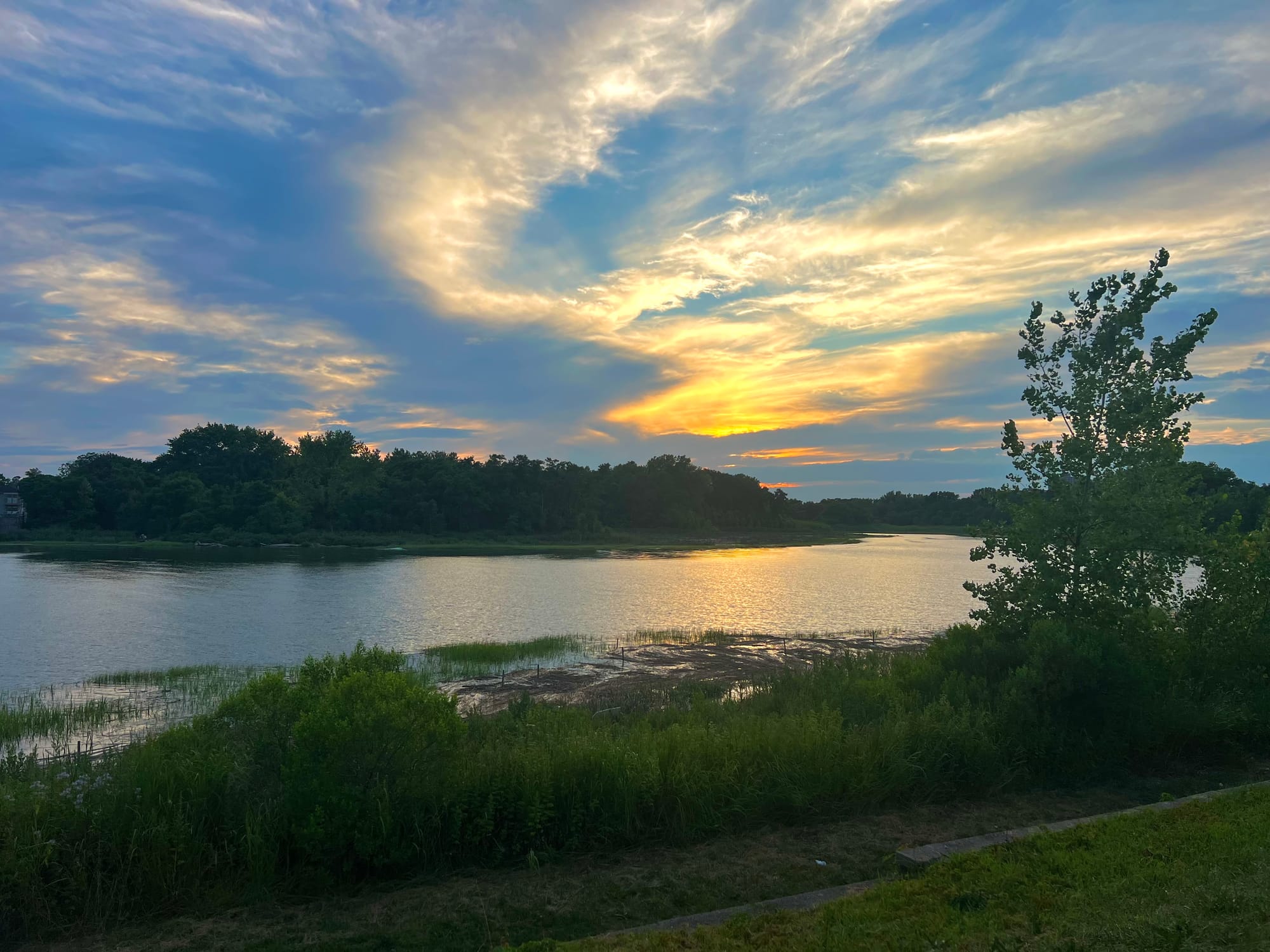Hi friends,
I’ve always dreaded editing. Maybe it’s because, after a break from working on a piece, I can finally see my writing for what it is—not for what I hoped it sounded like.
That changed when I read George Saunders’ A Swim in a Pond in the Rain. The way he talks about revisions is almost romantic. I picture him reworking his stories the way a woodworker does with a block of wood, carving for hours with tools of every size, until one day he turns a slab into a spoon or… what’s that thing you use to serve soup?
I’m currently revising a children’s story I wrote a year ago. It’s getting closer and closer to to what it wants to be. I’ve looked at it, rewritten it, and tinkered with the words so much, I can practically recite it from memory.
Still, it’s unfinished.
But that’s what it takes to make good art. Everything about writing is the antithesis of the culture we live in. It’s slow, laborious, and unsexy. And no matter how advanced AI gets, I truly believe it will never create a sentence like Abdulrazak Gurnah’s opening line in Gravel Heart:
“My father did not want me.”
There’s no way around it. You have to sit down, reread, and rewrite a story you’ve stared at for ages. So we might as well embrace the process.
If you have a story you abandoned because the editing felt too hard, I urge you to go back to it. Here’s how I suggest doing it:
Treat it like someone you like and care about sent it to you, asking for feedback.
Sit and read it all at once, without judgment, without commenting in the margins.
Then write down everything you felt about the story: where it worked, and where it didn’t. Most times, a section will stand out, calling to be explored— write down what attracted your mind to it.
If you’re lucky, you’ll catch a new vision for the story. You won’t see the whole thing, but you’ll sense the aroma of it. Set a deadline (which you will not meet, but that’s alright). Begin to write. Sit every day or every other day (anything less tends to steal your clarity and momentum).
When that draft is done, walk away. Write something else. Journal. Read. Take long walks during your lunch hour, or while the kids are at school or with someone else.
Some writers hand their draft to a friend or their spouse at this stage. Others just need space before returning to it with fresh eyes.
You might love what you read. You might not. And if you give it to someone else, be prepared. Sometimes what they see, or miss, in the story will make you angry. Be kind to yourself. Be kind to them. Take what makes sense, and ignore the rest.
Either way, you’ll notice things standing on the way of the story and others too shy to reveal themselves. That’s when you return to the page and do it all over again… until it no longer feels necessary, or you’re simply exhausted.
Will it get published after that? Probably not. But maybe. And there’s only one way to find out: by writing, editing, and submitting. If it gets published, celebrate. If it doesn’t, at least you created something beautiful and that’s enough.
Mohamed
📖 Books I’m reading?
I’m currently reading an editing book that one of my writing teachers recommended during my MFA program: The Artful Edit: On the Practice of Editing Yourself by Susan Bell.
💎 New From Me
Recently, I went down a rabbit hole exploring what happens to our brain when we journal. I made a video about it, along with all the journaling methods I’ve experimented with over the last 10 years. Enjoy!
🔖 Quote I’m pondering
“Art before laundry.”
— Kevin Kelly
Source: Excellent Advice for Living: Wisdom I Wish I'd Known Earlier
📸 Through My Lens

Please give me feedback on the newsletter by replying to this email. Do you find it worth your time? What do you want more or less of? Or other suggestions?
Thank you for reading!
Mohamed
